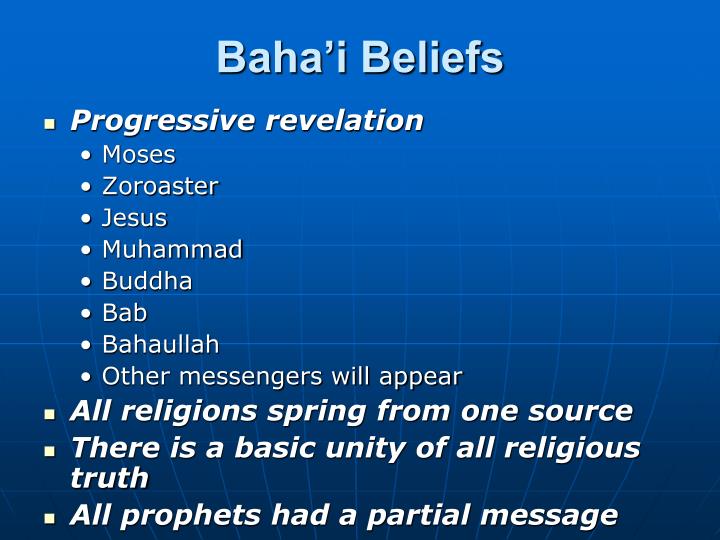The Baha’i Faith, often regarded as the religion of the thinkers, is imbued with teachings that encourage intellectual exploration, moral integrity, and universal compassion. At the heart of Baha’i teachings lies a commitment to reason and evidence, empowering adherents to engage with the world through a rational lens. This guide seeks to elucidate the essence of Baha’i teachings, framing them as a robust framework for both individual and collective advancement.
Beginning with the foundational principles, the Baha’i Faith posits the oneness of God, the unity of all religions, and the interdependence of humanity. This triad of beliefs serves as a philosophical cornerstone, positioning Baha’is as advocates for a synthesis of human understanding. Baha’is regard religious truths as progressive revelations; thus, each divine messenger, from Moses to Muhammad, is seen as part of an unbroken lineage leading to Bahá’u’lláh, the founder of the Faith. This progression underscores a fundamental tenet: no single religion can claim exclusive access to truth.
The principle of the oneness of humanity challenges prevailing paradigms of division and inequity. In an era marked by globalization, the Baha’i teachings resonate powerfully, advocating for the dissolution of barriers imposed by race, nationality, and creed. By promoting the concept of humanity as a single entity, Baha’is champion social justice and the eradication of prejudice. This ideal is not merely theoretical; it is an actionable directive that calls upon adherents to foster an environment of inclusivity and acceptance.
A pivotal aspect of Baha’i teachings is the emphasis on the role of education as a primary means of personal and societal transformation. Education, according to Baha’i philosophy, is a catalyst for empowerment that enables individuals to cultivate their innate capacities. This perspective is particularly significant in a world grappling with socio-economic disparities. The Baha’i community actively supports initiatives that aim to improve literacy and educational access, thereby reinforcing the notion that equitable education is fundamental to the progression of civilization.
Another critical dimension of Baha’i teachings is the promotion of gender equality. The Faith asserts that the emancipation of women is essential for the advancement of society. Baha’is are encouraged to advocate for women’s rights, recognizing that the full participation of women is pivotal in achieving a balanced and harmonious community. This conviction aligns with broader movements for gender equality, yet with a particularly spiritual underpinning that links the elevation of women to the well-being of humanity as a whole.
In terms of governance, the Baha’i teachings advocate for the establishment of a new world order characterized by justice and collaboration. Baha’is believe that the establishment of a global governance system is crucial for addressing the challenges of the modern age. This governance model, grounded in principles such as consultative decision-making and the elimination of conflict, seeks to reflect the diversity of the human experience while striving for collective prosperity.
Furthermore, the Baha’i Faith encourages adherents to cultivate a deep sense of spirituality while engaging in practical matters. This dual focus on the spiritual and material dimensions of life fosters a holistic approach to existence. Spirituality, in the Baha’i context, is not relegated to rituals or isolated practices; rather, it permeates daily actions and decisions, urging individuals to act with integrity and awareness of their interconnectedness.
The Baha’i teachings also delve into the importance of consultation as a tool for problem-solving. This practice involves collective discourse that honors both individuality and unity, recognizing that each voice contributes to the emergence of more comprehensive understandings. The consultative approach transcends mere dialogue; it becomes a transformative process that nurtures a culture of cooperation and mutual respect.
An additional tenet of Baha’i teachings is the cultivation of virtues. Baha’is are encouraged to strive for personal excellence, embracing virtues such as kindness, honesty, and perseverance. The development of these virtues is imperative for individual growth and societal advancement. Such character building is seen as a foundational step toward influencing others positively and contributing to the formation of a peaceful community. This emphasis on virtue is reflective of a broader philosophical framework that links personal morés with global outcomes.
In discussing the Baha’i approach to conflict resolution, the teachings underscore the significance of forgiveness and reconciliation. Baha’is are urged to transcend enmity and embrace a spirit of amity, recognizing that true peace is achieved not through mere cessation of hostilities, but through the cultivation of love and understanding. This is a radical call in a world often characterized by discord, reminding followers of the transformative power of compassion in healing rifts both personally and socially.
Finally, Baha’i teachings articulate a vision for the future, foreseeing collective governance and the establishment of a unifying global society. This aspirational framework is predicated on the belief that humanity is on the cusp of a new era, marked by cooperation and a shared commitment to advancing the common good. Baha’is are called to be harbingers of this coming age, investing their energies in creating conditions conducive to peace and understanding.
In summary, the Baha’i Faith provides an intricate tapestry of teachings that serve as a guiding light in contemporary times. Its invitation to engage with the world intellectually, spiritually, and morally is both profound and relevant. Through the integration of these teachings into daily life, adherents not only enhance their personal development but also contribute to the global community’s evolution towards unity and peace.
